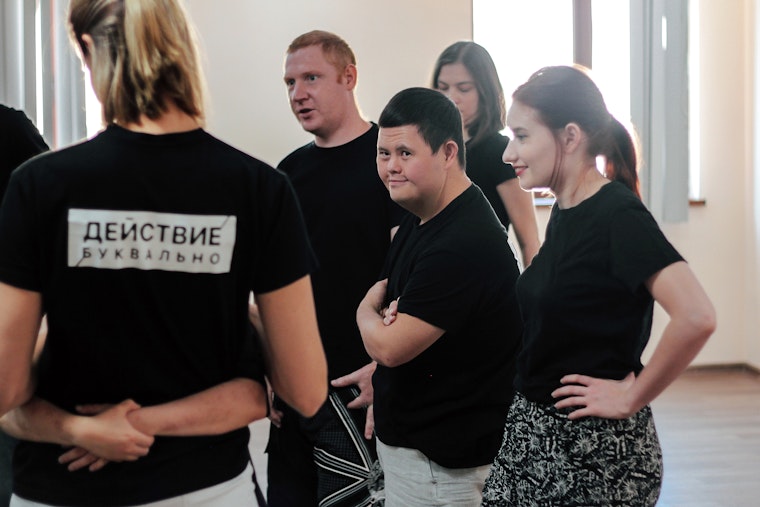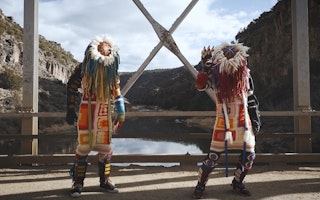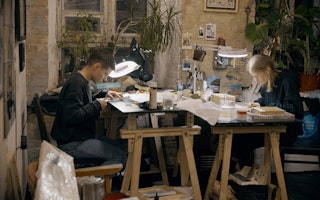Q&A: Kazakhstan’s Theater for All

Saule Mamayeva from Soros Foundation–Kazakhstan spoke with Olga Sultanova, director of the inclusive theater project Literal Action in Kazakhstan, which is the only inclusive theater project of its kind currently operating in the country.
What is an inclusive theater?
An inclusive theater is one where professional actors and people with developmental or physical disabilities share the same stage, on equal terms, as actors. At our theater, we believe that everyone, regardless of their background, language, or abilities should be able to express themselves creatively and have the opportunity to perform on stage.
How did Literal Action start?
To see how the idea would be received, the project originally started as a series of workshops at an international arts festival. We held practical theater classes for people with disabilities and the workshops received overwhelmingly positive reviews. With the support from Soros Foundation-Kazakhstan, we were able to grow. We then assembled a theater troupe of 20 people—10 professional actors and 10 adult actors living with down syndrome or autism—and set out with a goal to produce the first professional, inclusive theater performance in Kazakhstan.
What impact does the theater have on the actors?
Inclusive theater is often compared to art therapy, but these two methods have radically different approaches. First and foremost, we are not therapists; we are artists. Through inclusive theater we use theatrical techniques to connect people, and to facilitate social interactions, creative expression, and encourage alternative forms of communications for all involved.
As a result, we have seen all of our participants become more independent and confident. Some participants have told me that through their work at the theater they feel that they are needed by society, and that their life and work benefit others. All of our theater participants receive wages for their work, which has also resulted in greater acceptance and empowerment of themselves, and they see themselves as equal members of civil society.
What impact does the theater have on the audiences?
When an audience comes to us, we know what’s on their mind. There is a great deal of stigma in our society about people with disabilities, and we know they bring some of those tough attitudes or misconceptions with them.
After our open lessons, however, many of the audience members said that they connected with those who are on the stage. Through the art, they come to understand the concept of “equality” more clearly. I believe that this is our mission. Thanks to art, we can change our world and the worlds of people around us.
What are your plans for the future?
One of my many dreams is for our troupe to perform at international theater festivals. I also hope that our participants are not afraid to grow and develop, not be afraid to be equal members of civil society, and that they feel the support of everyone who meets them on the way. I would very much like this successful experiment to be scaled up, nationally, and to see it become an institution that helps to enrich and empower persons living with disabilities.
Literal Action is a grantee of the Open Society Foundations.


